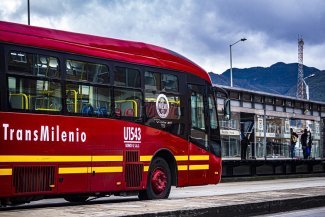When Abdeslam Ouaddou stepped onto the main stage of the opening ceremony at the 3rd International Trade Union Confederation (ITUC) World Congress in Berlin, he was warmly welcomed by over 1500 trade union delegates from over 160 countries.
The former Moroccan international footballer has helped spearhead an ITUC campaign to expose the working and living conditions of migrant workers in Qatar, where he played professionally for two years.
Ouaddou told the audience that his stay in Qatar was “the worst moment of his career”, driving him to the brink of a “psychological breakdown”.
When his football club refused to respect his contract agreement, Ouaddou was directly confronted with the so-called kafala system, in which the authorisation of a foreigner’s “sponsor”, or contractor, is needed to get an exit visa or change jobs.
Following a long legal battle Ouaddou was finally able to leave Qatar.
His international footballer status gave him a major platform to expose the human rights abuses in Qatar, where some 4000 migrant workers are expected to die building the infrastructure for Qatar’s controversial 2022 World Cup.
According to Qatar’s own figures, between 2012 and 2013 964 migrant workers from Nepal, India and Bangladesh working on construction sites have already died from cardiac arrest, falls or suicide.
A new report commissioned by the Qatari authorities to an international law firm mirrors previous assessments made by human rights groups, trade unions and investigative reports which have revealed the severe exploitation of migrant workers in the country, akin in some cases to forced labour or slavery.
Reacting to the report, the Qatari government announced plans to reform the labour law and to replace the kafala system by “an automated system through the Ministry of Interior.”
But no deadline has been set for implementing the reforms, and campaigners describe the minimal changes as kafala in all but name.
Migrant workers will still need an exit visa to leave the country, while the new labour law still doesn’t allow freedom of association or a minimum wage.
Ouaddou called it a “masquerade” while ITUC General Secretary Sharan Burrow sees it as “an amazing sham.”
“The changes were purely cosmetic. The exit visas will stay, people will still be trapped, there was no agreement to a minimum wage and of course, there is still no right to organise,” said Burrow.
The ITUC is calling on FIFA to introduce the above measures, along side several others, as a pre-condition to hosting the World Cup.
Abuses in the name of the sport
In the last twenty years, Qatar has used its massive oil reserves to transform itself from a tiny Gulf state into an international power player.
But hiding behind Doha’s impressive skyline are 1.4 million poorly-paid migrants living in overcrowded filthy rooms located in remote camps, working around the clock, six days a week, under temperatures that can reach as high as 50ºc.
By 2022, an estimated US$200 billion will be spent on eight new stadiums, 92 training sites, a new rail and metro system, a port, an airport and as well as more than 100 hotels to host the thousands of expected football fans.
Qatar estimates that half a million extra migrant workers will be needed to complete these works.
But in the absence of concrete measures to improve their situation, the World Cup will trigger massive human rights abuses committed in the name of sport, campaigners say.
For Ouaddou, this is unacceptable. “We cannot play football in stadiums where blood was shed,” he told ITUC delegates.
“This would be against the values of sport.”
Echoing Ouaddou is Zahir Belounis, a French football player whose ordeal in Qatar made international headlines last year.
After suing his Qatari employer for breaching his contract, Belounis was banned from leaving the country. Six months ago, after a traumatic two-year legal and diplomatic fight, he was finally allowed to return to France.
“I will continue to fight for justice,” Belounis told Equal Times. “This goes beyond sports. There was suffering. I was held against my will.”
But Belounis thinks that holding the 2022 World Cup in Qatar is actually a good thing, as it will “put the spotlight on the country’s human rights record.”
“But to be honest with you,” adds Belounis, “I stopped following football. I don’t believe in it anymore.”
In an interview with a Swiss broadcaster last week, FIFA president Sepp Blatter said it was a “mistake” to choose Qatar to host the 2022 World Cup.
His comment however was not motivated by the conditions of migrant workers in the Gulf state, but by the fact that the weather there is “too hot”.
Please visit www.radiolabour.net for daily podcasts from the 3rd ITUC World Congress.









